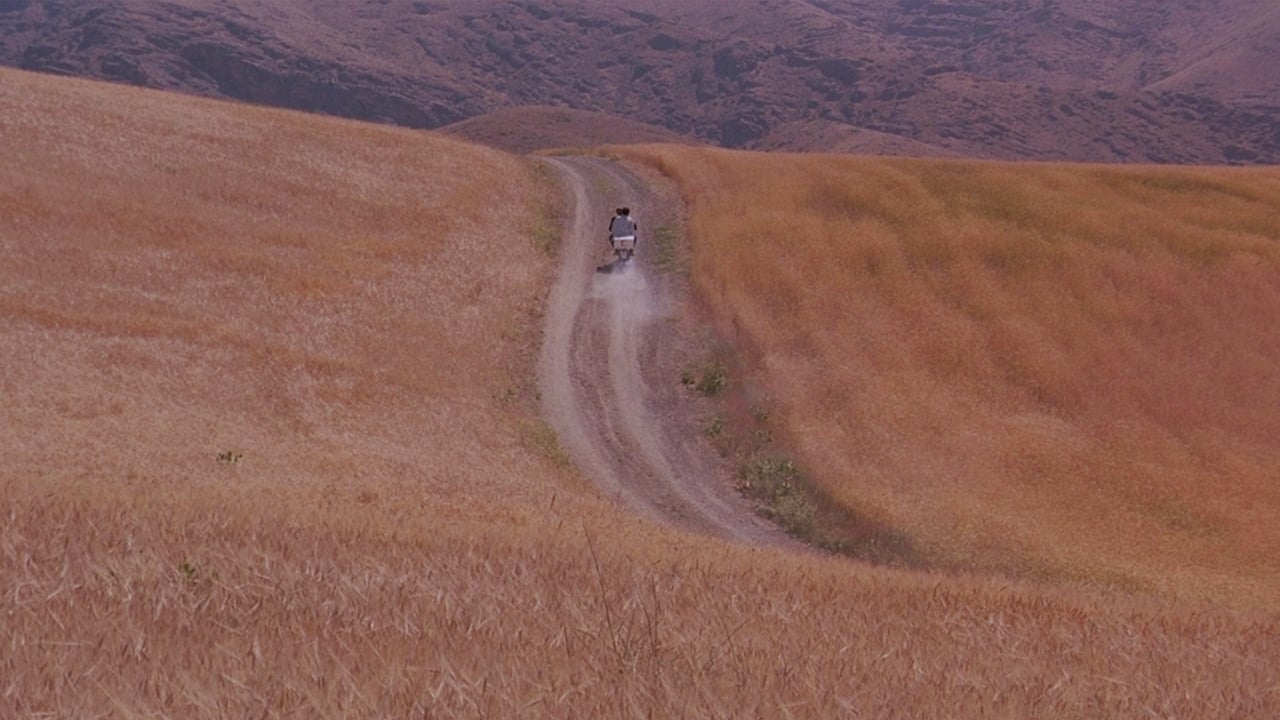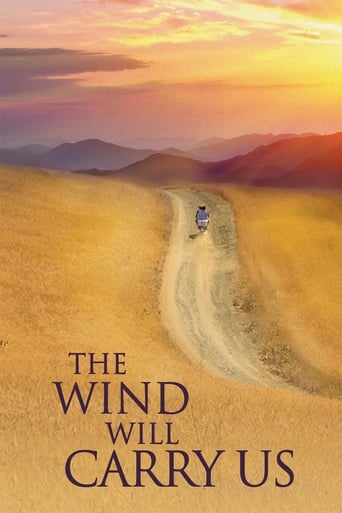Salubfoto
It's an amazing and heartbreaking story.
Ogosmith
Each character in this movie — down to the smallest one — is an individual rather than a type, prone to spontaneous changes of mood and sometimes amusing outbursts of pettiness or ill humor.
Rio Hayward
All of these films share one commonality, that being a kind of emotional center that humanizes a cast of monsters.
Sabah Hensley
This is a dark and sometimes deeply uncomfortable drama
Jackson Booth-Millard
This Iranian/Persian film used to feature in one of the versions of the book 1001 Movies You Must See Before You Die, I have always said I will try any and all film that have been and will be in it, directed by Abbas Kiarostami (Close-Up, Taste of Cherry). Basically in the hills of Kurdistan, an unnamed city Engineer (Behzad Dorani) and his two two (unseen) assistants are searching for a small village in the mountains. They arrive and are greeted by a young boy who shows them a place for them to stay and guides the engineer to the home of an (unseen) elderly dying woman. It is unclear to the people why the engineer and his men are there, some locals think he he wants to the purchase the land when the old woman dies, others think he could be an archaeologist searching for rare artefacts. Meanwhile the engineer spends time exploring the village and encountering the people who live there, most are women, the men are at jobs that occupy them day and night for several months of the year. The engineer also stays in touch with the boy, who keeps an eye on the old woman's health, while also doing his schoolwork, working on his family's farm, and doing household chores for his mother. The engineer gets a few calls on his cellular phone, he is required to drive to a graveyard to receive the calls, most however are wrong numbers, while doing so he encounters an (unseen) gravedigger and a girl who milks cows kept in a basement. Over time the engineer has done everything he can to fit into the community, while sticking around for his supposed relative, and his attitudes to things change by the time he is ready to leave. There is only one character to truly focus on throughout the whole film, leaving the viewer to speculate about withheld information, it a static, emotionally detached and subtle celebration of the dignity of labour, I am honest in saying I could not follow any real story, I just liked the leading character and the vibrant backgrounds, overall an interesting enough drama. Good!
sharky_55
The Wind Will Carry Us is slow-paced and meandering, and this is initially infuriating for a viewer. It is the same sort of cultural shock that hits the 'Engineer' upon arriving at the modest, quiet villages etched into the side of the mountain. Kiarostami takes time to point his camera at trivial instances - an apple falling down pipes, a bone floating down the river. The dialogue goes everywhere but ends up nowhere nearer to Behzad's goal: to film the macabre mourning ceremony that will occur once a 100 year old woman passes away. But it does not happen at once, and they are forced to wait. They are impatient - all but Behzad never even show their faces, nor does his supervisor on the phone. They are a symbolic absence that hints at their inability to re-orientate themselves within this small community. The comical recurring gag is that every time Behzad gets a call he must drive all the way up to the highest hill, ironically near a cemetery, just to again be chastised by his boss and have little explanation except to plead for a few more days. It is in fact his hurried nature that clashes with the village and its inhabitants. The opening scene is a marvel - Kiarostami captures the 4 journalists in gorgeous overhead wide shots that emphasise the physical beauty of the surroundings, the rolling golden hills, the winding pathway, the pristine green pastures. And then he subverts this experience by placing our ears right into the car - they bicker and bicker for 5 minutes, arguing whether they are going the right way and if their directions were correct, completely oblivious to the nature around them. Even when the car breaks down and they are forced to confront the physical setting, the dialogue continues right into our ears as if we were walking alongside Behzad, constantly querying about his objective. This technique mars our experience too, because the pervasive squabbling and questioning is at odds with the distance and beauty that the camera presents. Elsewhere Kiarostami wields his camera with a curious omniscience, ever at conflict with the keenly busy engineer. In one instance, having received bad news from his boss, he angrily kicks out at a turtle, knocking it on its back. And then as he drives away, we remain focused on the writhing creature. In most movies this would be solely to emphasise the cruelty he has inflicted, and perhaps hammer home the message of his disregard for the wilderness and nature. But lo and behold, the turtle pops back up again, with Behzad long gone. Nature is not so easily swayed, not at least by the urban touch of these visitors. Much like the turtle, the village elder also refuses to die at his command. The group are so obviously out of their depth, but do not ever seem to consider and recognise it. A evocative poem's power is neutered by a culture clash - to be able to conjure up such stirring imagery, but rush past golden fields swaying in the wind on foot, bike and car. He is scolded as he tries to discreetly capture a candid argument between two elderly villagers on the labours of life and love - this must be experienced in person. And as he has his daily shave, he looks towards the camera which doubles as a mirror, and the observer, who sees so little with his filtered perspective, becomes the observed.
freddythreepwood
What is most striking about this movie is the ethereal photography that effortlessly that transports the viewer into a harshly beautiful locale, affording a fascinating glimpse into the lives of folks in a village in a timeless and desolate corner of Iran. That is the positive.The negative is overwhelmingly the irritating and emotionless main character. Less of an annoyance, but nevertheless a negative, is the lack of any consistent symbolism, meaningful psychological representation or even a satisfying denouement.The leading character did not appear to be optimally cast. His character portrayal was completely underwhelming, and I found myself becoming increasingly weary of hearing his whiny voice go and on.That's another thing about this movie (and "Ten", also by the same director) - endless prattle. The opening shots of this movie are simply spectacular - very unique scenery that I was content to watch unfold, never mind the story. But then the "Engineer" and his pal start their yak and it kills the mood. They just talk for the sake of talking - no direction, no pauses, no point, just one over the other. I think this and other subsequent portions of this movie would have been more effective and dramatic by the use of silence. The entire movie lends itself very strongly and naturally to silence, rather than incessant, pointless and distracting conversation.The kid in the movie is good, but once again - the lines he is forced to deliver are sometimes so unnatural and garish as to make the viewer wince. No kid that age would speak like that! (Same comment for "Ten").All in all - a mixed bag. Nothing very symbolic or enigmatic here that is worth the watching. But if you watch it with lowered expectations, you will vastly enjoy a glimpse into an another world - an insulated world of community, rustic reality, open spaces and open hearts. And that is definitely worth something.
bigrichry
Have very much enjoyed Iranian films but was lost with this one. Starts out with a long ambling conversation from within a jeep but no faces. Some persons are traveling somewhere for a dark reason that was never revealed that I could tell. The setting was outstanding and the cinematography very good. The main protagonist was neither fish nor fowl but rather aggravating. One little boy was very cute. One woman was memorable. One dramatic event seemed unrelated to the story which seemed to end when the camera ran out of film. I may try it again sometime. At least it is not the dreary stuff from the movie factory with cardboard cutouts for characters. I came to IMDb tonight to see what it was all about, but still don't know.

